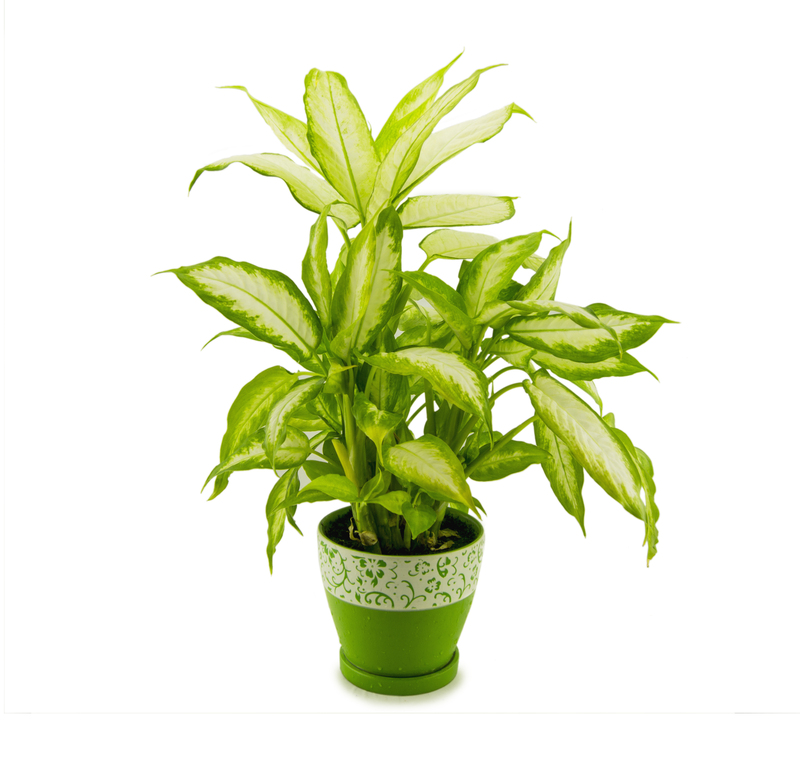Eco-Friendly Alchemy: Organic Waste to Soil
Posted on 07/09/2025
Eco-Friendly Alchemy: Organic Waste to Soil
As the world grapples with mounting waste and depleting natural resources, eco-friendly solutions are more critical than ever. One such transformative approach is turning organic waste into nutrient-rich soil--a process that can be described as modern alchemy. This strategy not only reduces landfill waste but also regenerates the earth by restoring soil vitality. In this article, we'll explore how organic waste conversion to soil works, its environmental impact, best practices, and innovative techniques making this sustainable process accessible for everyone.

Understanding the Alchemy: What is Organic Waste to Soil?
Organic waste to soil is the process of transforming biodegradable materials--such as food scraps, garden trimmings, and manure--into rich, healthy soil through biological decomposition. Microorganisms, fungi, and invertebrates work collaboratively to break down this waste, transforming it into dark, crumbly compost or humus that invigorates garden beds, farms, and even large-scale landscapes.
Why Is Turning Organic Waste Into Soil So Important?
- Reduces landfill volume - Diverting organic material from landfills prevents the production of methane, a powerful greenhouse gas.
- Enriches the soil - Adding organic matter improves soil structure, fertility, and moisture retention, resulting in more productive crops and healthier plants.
- Closes the nutrient loop - Recycling nutrients that would otherwise be lost helps to sustain agriculture without synthetic fertilizers.
- Promotes biodiversity - Compost-amended soils support a vibrant ecosystem of beneficial microorganisms.
The Science Behind Organic Waste Transformation
Microbial Magic: How Decomposition Occurs
The remarkable transition from organic matter to fertile soil relies on a thriving community of decomposers. Bacteria, fungi, earthworms, and even insects collaborate to break down complex compounds such as cellulose and lignin into simple nutrients. The process proceeds in three main stages:
- Mesophilic stage - Moderate temperatures see bacteria begin the breakdown of soluble sugars and proteins.
- Thermophilic stage - As microbial activity heats things up, tough materials such as fats and cellulose are decomposed.
- Maturation stage - The pile cools and stabilizes, with earthworms and fungi completing the transformation into stable humus.
Each stage is essential for the eco-friendly alchemy that produces safe, invaluable soil.
Benefits of Organic Waste-to-Soil Practices
Environmental Impacts
- Mitigates greenhouse emissions: By composting, you steer organic matter away from anaerobic landfill conditions that produce methane. On an industrial scale, this could mean millions of tons of carbon emissions prevented annually.
- Reduces need for chemical fertilizers: Organic compost supplies virtually all essential macro- and micronutrients crops need, reducing dependency on artificial fertilizers known to degrade soil over time.
- Improves soil health and water retention: The humus created through composting not only feeds plants but also improves the soil's capacity to retain moisture, which is crucial in drought-prone regions.
- Supports the natural ecosystem: Compost's living organisms foster a thriving ecosystem underground, enhancing plant resilience and fighting off disease.
Social and Economic Advantages
- Cost-effective waste management: Households and cities spend less when diverting organic matter from trash collection and landfill fees.
- Promotes local food systems: Healthier soil means more productive gardens and farms, supporting local food security.
- Green jobs creation: Composting operations--from small-scale co-ops to industrial facilities--create employment in urban and rural environments.
How To Convert Organic Waste Into Soil: Composting Fundamentals
The Basics of Composting at Home
Composting is a straightforward yet powerful way for every individual or family to engage in the eco-friendly transformation of waste to soil. With simple equipment and some patience, you can produce your own nutrient-rich compost. Here's how to get started:
- Choose a location: Pick a dry, shady spot near a water source for your compost heap or bin.
- Add green and brown materials: Greens (fruit and vegetable peels, coffee grounds) add nitrogen, while browns (dry leaves, cardboard, straw) provide carbon.
- Moisture is key: Keep the pile as moist as a wrung-out sponge, but not soaked.
- Turn your pile: Aeration speeds decomposition. Use a pitchfork or compost turner to mix weekly.
- Patience: Depending on method and conditions, compost can be ready in two months to a year.
Composting Methods Explained
-
Backyard hot composting:
- Quick, ideal for garden owners
- Requires regular turning and careful balance of greens and browns
-
Vermicomposting:
- Uses special earthworms (red wigglers) to process kitchen waste
- Perfect for apartments or small spaces
-
Bokashi composting:
- Ferments food wastes with beneficial microbes
- Efficient for meat, dairy, and cooked foods unsuitable for many traditional methods
-
Industrial or municipal composting:
- Handles large volumes from entire communities
- Controlled, rapid decomposition producing commercial compost
Common Mistakes and Tips for Successful Composting
- Don't let your pile get anaerobic: A stinky pile usually means poor aeration. Turn more often and add dry material.
- Avoid attracting pests: Do not add meat, dairy, oil, or pet feces to open home systems.
- Balance is everything: Too much green creates a soggy, smelly mess. Too much brown slows decomposition.
- Watch your moisture: Drought stalls microbial action; excess water can suffocate microbes.
- Size matters: A pile should be at least 3' x 3' x 3' for optimal microbial activity, but not so large it's unmanageable.
Innovative Practices in Organic Waste Upcycling
Circular Economy Approaches
Cities and farms are adopting circular models for organic waste conversion. For example, urban food co-ops might collect kitchen scraps from members, compost them, and return the finished soil back to community gardens. This virtuous cycle reduces food miles and keeps nutrients circulating locally.
Black Soldier Fly Larvae
Industrial operations increasingly use black soldier fly larvae to devour food waste. The larvae transform waste into rich compost while producing protein meal for animal feed--a double eco-friendly benefit!
Biochar for Enhanced Soil
Biochar is a stable form of carbon produced by heating organic waste in the absence of oxygen. Mixed with compost, it boosts soil fertility, locks carbon away for centuries, and improves water retention--an extraordinary example of eco-friendly alchemy.
Essential Elements for Optimized Organic-to-Soil Conversion
Carbon-Nitrogen Ratios
The ideal compost pile has a carbon to nitrogen (C:N) ratio of roughly 25:1 to 30:1. Too much nitrogen (greens) leads to bad odors; too much carbon (browns) results in slow decomposition. Layering is one simple way to maintain this balance.
The Role of Temperature
Properly managed piles heat up to 130-160?F (54-71?C), which is hot enough to kill many plant diseases and weed seeds. Monitoring with a compost thermometer helps ensure the pile is "cooking" as it should.
Compost Maturity
Finished compost is dark, crumbly, earthy-smelling, and cool to the touch. Immature compost can damage plants by robbing soil of vital nitrogen or spreading pathogens, so allow piles to rest before use.
Critical Role of Soil in Climate Solutions
Soil health is intricately tied to climate resilience. By returning organic matter to the soil, we sequester atmospheric carbon and boost the land's ability to withstand droughts, floods, and pests--making the alchemy of turning waste into soil a key strategy in environmental stewardship.
Case Studies: Organic Waste to Soil in Action
- San Francisco's Curbside Composting: As the first U.S. city to mandate organic recycling, San Francisco diverts hundreds of thousands of tons of food and green waste annually. The resulting compost rejuvenates local vineyards and farms.
- The BioCycle Farm Model: Small-scale farms integrate animal bedding, crop residue, and kitchen scraps to produce sufficient compost, eliminating the need for chemical amendments altogether.
- Neighbor-Driven Initiatives: Community compost drop-offs supply gardens, parks, and schools with vital organic matter, while fostering a culture of mindful waste disposal.
How You Can Participate in Eco-Friendly Alchemy
- Start a home or community compost bin: Engage your household, neighbors, or school to keep food scraps out of the landfill.
- Shop for food with minimal waste: Plan meals, store produce effectively, and use peels and stems for stocks before composting.
- Support local composting businesses: Many communities have collection services or drop-spots for organic waste.
- Advocate for municipal programs: Encourage your local government to launch large-scale compost initiatives that can create jobs and healthier parks and gardens.

Future Outlook for Organic Waste Transformation
The movement towards eco-friendly conversion of organic waste into soil is accelerating worldwide, in sync with climate mitigation targets and a growing recognition of soil's central role in global health. Future innovations may include:
- Automated household composters: Sleek, odor-free machines that process kitchen scraps in days
- Blockchain tracking of organic matter flows from table to farm
- Advanced compostable packaging: Products that truly break down in home systems
- Widespread adoption of soil-enhancing biochars
These advances promise to make the alchemy of organic waste to soil accessible, effortless, and beneficial at every scale.
The Bottom Line: Nature's Magic, Our Responsibility
In summary, transforming organic waste into fertile soil is both ancient practice and cutting-edge science--a quintessential form of eco-friendly alchemy. By participating in this cycle, you can:
- Cut your carbon footprint
- Enrich gardens and farms
- Reduce reliance on harmful chemicals
- Support local food systems and biodiversity
Mother Nature offers us a powerful lesson: waste is merely a resource in disguise. Let's embrace this transformative vision, turning discarded scraps into life-giving soil--one compost pile at a time. The journey toward sustainability begins literally under our feet, as organic waste alchemy restores the ground on which we all depend.
Latest Posts
Affordable and easy garden concepts for every home
Harnessing Nature: Taming Windy Conditions in Gardens
Simple Steps to Beautiful Orchid Blooms

